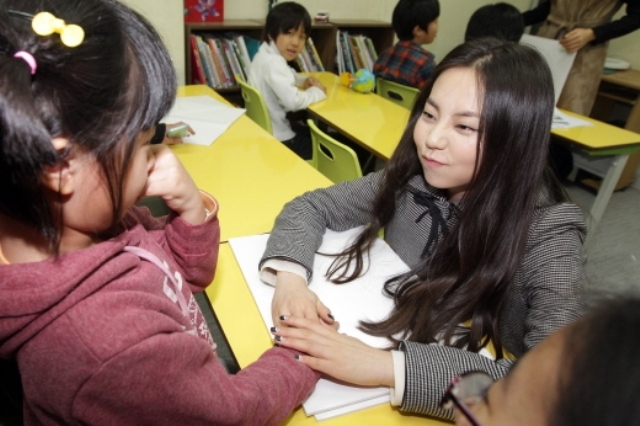In 2023, Valentina Ten, ICDP trainer from Tashkent, currently living in Seoul, has been exploring ways in which to start developing ICDP in South Korea. In May 2024, she described her breakthrough:

“I have good news to share. After moving to Korea from Uzbekistan, I have been looking for an opportunity to continue sharing the ICDP principles and working in the education field. Of course, being an immigrant, there were certain difficulties. But I believe a good thing always finds a way to be shared.
In partnership with the local office (it is a kind of Social Welfare Community Centre) in the area where I live, we launched an ICDP group as part of the project for immigrants.
Since the war in Ukraine, the number of Russian-speaking migrants in Korea has been growing. In view of this, the local authorities are helping them adjust and were open to me applying the ICDP programme. We can use the centre’s premises and the local office covers all administrative expenses, including coffee breaks.
It is a small project serving 15 people, but it is a good start, I believe.”
Previous ICDP work in South Korea:
In 2014, Sangwon Yoon carried out an ICDP project on the Juju island, in cooperation with the Jeju Parents’ Network for People with Disabilities (JPNPD).
Jeju Parents’ Network for People with Disabilities (JPNPD) recruited the worksop participants from their own network. In addition, they provided funding and also premises where the ICDP meetings with parents took place.
For this project Sangwon translated some of the ICDP materials from English to Korean, such as the ‘Introduction of ICDP’ by Karsten Hundeide, the ‘ICDP leaflet’ amd ‘I am a person’, the ICDP booklet by Karsten Hundeide and Nicoletta Armstrong, which contains the 8 guidelines for good interaction with exercises and home tasks for parents. At the end of the project the participants received a poster with the photos and captions for the 8 guidelines.
Sangwon explains:
” This project participants are parents whose children have developmental disabilities; such parents usually feel a degree of frustration in communicating with their own children. This is because children with developmental disabilities, especially autism, tend to prefer to communicate in other ways, such as music, drawing, body, or written language.
Moreover, parents sometimes underestimate their children and their capacity for communication with others, and this is often strengthened by stigma in society; the inner resources for caring and positive communication with children can be severely hindered due to prejudices.
In this project, my task was not to act as an instructor or lecturer teaching participants theoretical knowledge or behavior strategies for positive communication, but as a facilitator or mediator helping participants to construct individually and collectively a positive conceptions of their child and develop positive communication cycles with their children; they can best do this by building on their own experience and shared personal stories.
At group meetings I used certain methods to enable the participants to construct and reconstruct their knowledge and experience by themselves autonomously, not through lectures. For example, participants held group discussions, shared information and experiences, engaged in analyzing video demonstrations, applied self-assessment and observation exercises, including home tasks and role play. On the other hand, I was a sincere listener and trustful respondent supporting participants in their own processes of reflection and exchange of communicative experience, especially by focusing on their existing positive experience. This is in line with the fact that all human beings have their own resources to actualize their lives toward a more positive direction; most parents can convert challenges towards a positive direction by themselves, once they face their own needs and apply their inner-resources to solve the challenges. Dealing with challenges by oneself leads to a feeling of well-being. Thus, the most important role of a facilitator is to make an emotionally safe haven for caregivers to talk about their own needs and to find their own inner-resources.”

